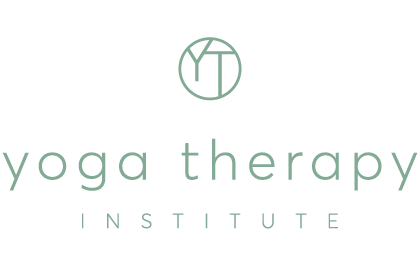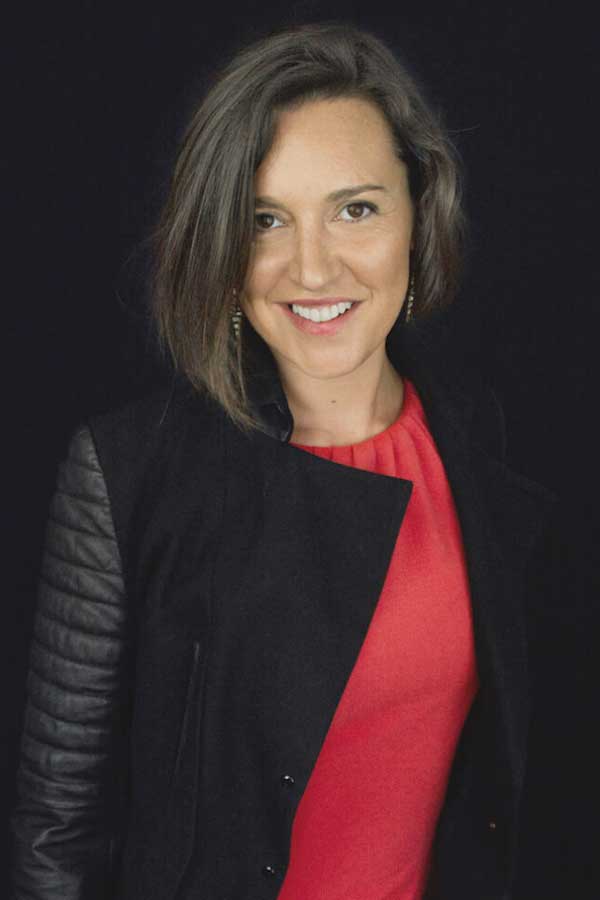Embodying the Body with Janet Lowndes by Brook McCarthy
People with eating disorders often have a fragmented sense of self where the body and mind are perceived as two separate, conflicting entities. Psychologist and yoga teacher Janet Lowndes helps clients to mindfully inhabit their bodies and begin appreciating its functionality rather than habitually punishing its form.
“I often ask clients, ‘how does it feel to live in your body?’” says Janet. “This is not something most people have ever considered. Our culture encourages us to separate our mind from our body, which can lead to an unhealthy relationship where we live in our head and are only aware of our body when it disappoints us, when we’re judging it, or when we experience pain or illness.”
Janet started yoga when in her early 20s, seeking to rehabilitate a shoulder injury. “I was incredibly lucky to find a teacher who taught the breadth of yoga – meditation, chanting and the wisdom of the Sutras,” says Janet. After graduating from her psychology degree then practicing as a counsellor for a little less than 10 years, Janet left the profession feeling burned out, and she travelled to India to learn more about Yoga.
“I found a complete system of psychological understanding along with strategies and practices to enhance our relationships with our inner and outer environments.” Janet stayed in the Swami Vivekananda ashram just outside Bangalore and gained her teacher training certification, following this with a two-year diploma at the Centre for Adult Education in Melbourne, a course on which she now teaches. She also presents on aspects of mental health and the mind-body relationship, how to work therapeutically, counselling skills, women’s health, and addiction on the Australian Institute of Yoga Therapy’s Graduate Certificate in Yoga Therapy course.
Our dieting norm
Janet began her therapy and counselling career at a community health centre in country Victoria, where many of her clients were young people presenting with eating disorders. “I was somewhat thrown in the deep end and learnt quickly,” says Janet. She saw many clients whose parents took them to Weight Watchers or Jenny Craig when they were eight or nine years old. Children taught from an early age to fight against their natural appetite often struggle against the body’s natural impulses as they grow into adulthood.
“Our culture sees dieting as a normal state of affairs. A major part of any eating disorder is fragmentation of the self where the mind and body are seen as separate, often conflicting entities. As well as consulting to many people with eating disorders, I see others who have very disordered eating – alternating between bingeing and abstaining, denying whole food groups, such as carbohydrates, and constantly objectifying their own bodies in the eternal quest for perfection,” says Janet.
Relating to the body
Janet works to help clients develop a healthy relationship with their body. Starting with their beliefs, thoughts and self-talk about their body, including changing an attitude of selfcriticism to one of self-compassion and kindness to the self, Janet explores lifestyle patterns, attitudes towards exercise, as well as posture and breathing.
“Many people don’t mindfully inhabit their bodies. They identify with their thoughts, believing them to be true and frequently rage against their body’s form rather than appreciating it for its functionality,” says Janet. “A gentle asana practice focused on the subtle, experiential essence of yoga combined with regular meditation, relaxation and svadhyaya (self-study) can help clients recognise how their thoughts and feelings are keeping them connected to behavioural patterns related to the eating disorder.”
The role of yoga in eating disorders
Periodic scandals about yoga being objectified unsettle the yoga world, most recently with the Equinox viral video, as various yoga studios or products are advertised in a way that appear to objectify the body beautiful and elevate the role of asana far beyond what the Yoga Sutras originally intended. Ironically, in the case of the Equinox video, yoga teacher and model Briohny Kate Smyth responded to criticism of her doing yoga in her underwear by revealing how yoga had helped her overcome an eating disorder and gain confidence in her body.
Subtle and not so subtle associations between yoga and the objectification of the ‘body beautiful’ can confuse the message of what yoga is all about and Janet is dismayed to hear clients say that they are not thin or flexible enough to try a yoga class. “Yoga is sometimes taught with a focus on appearance or outcomes rather than as an experience and exploration,” says Janet. “As Yoga Teachers we need to consider what kind of images we use to promote yoga. What message does it send when we show images of the ‘perfect body’ doing the ‘perfect asana’?”
Yoga as a psychological system
Janet notes that yoga is first and foremost a system of psychology with a holistic understanding of wellbeing. “Patanjali’s Yoga Sutras contain wonderful wisdom about the human psyche which modern psychological thought is only recently starting to comprehend,” says Janet. “The body is scarcely mentioned in western psychology, which often takes a reductionist approach, seeing each element of the person as a separate entity rather than an inseparable whole.”
Much of Janet’s work involves emphasising a different, more helpful perspective for her clients, and focusing on building the strength of the healthy self rather than attempting to challenge the eating disorder head-on. “What we resist, persists, and this is very much the case with eating disorders,” says Janet. “Rather than trying to tackle harmful thinking directly, we focus on using breath work to integrate the mind and the body and to inspire appreciation for what the body is capable of. We explore what it means to be a human being, with all our imperfections, struggles and joys.”
About the author Brook McCarthy is a writer and director of creative communications agency Yoga Reach, which helps yoga and wellbeing businesses to thrive.

